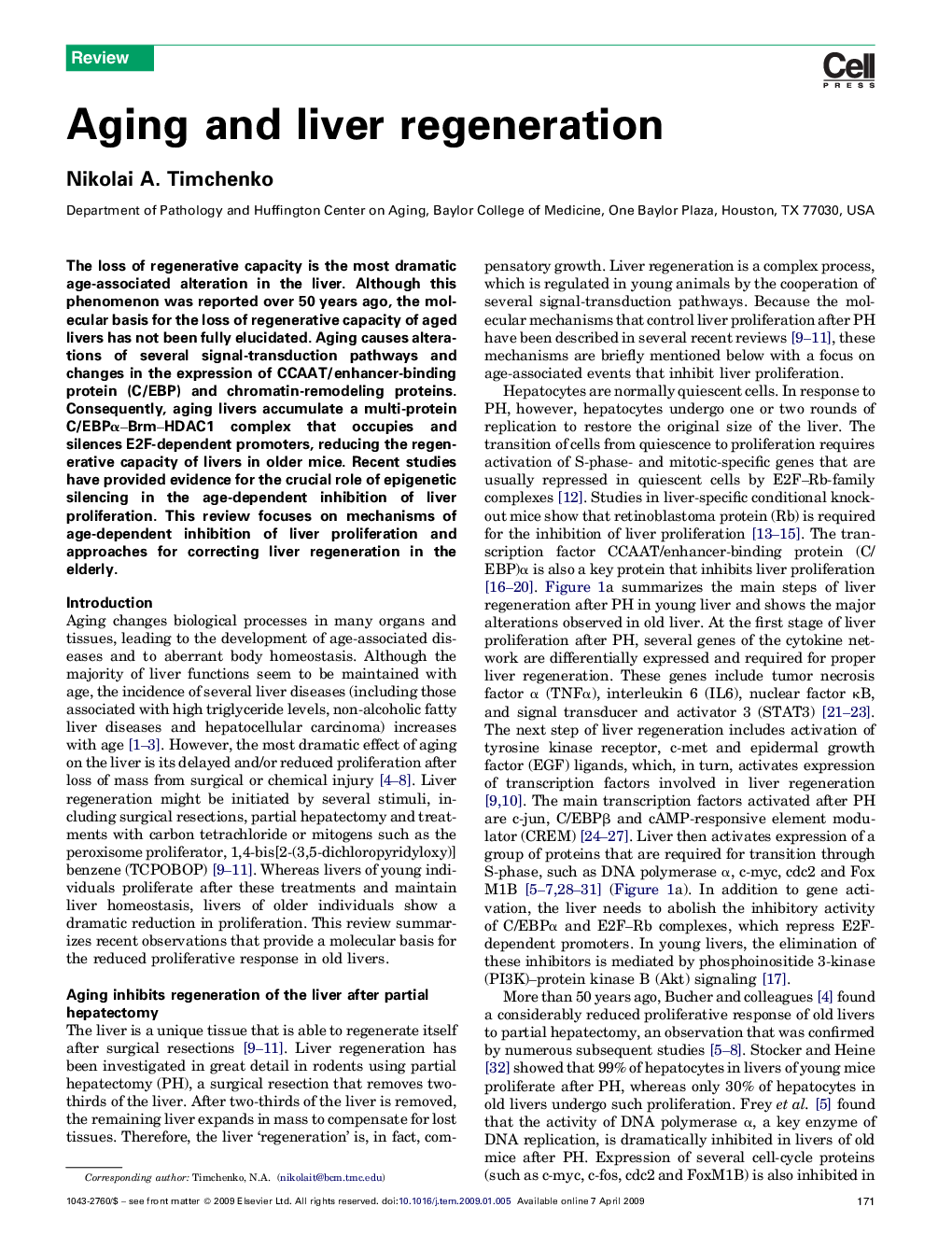| Article ID | Journal | Published Year | Pages | File Type |
|---|---|---|---|---|
| 2810780 | Trends in Endocrinology & Metabolism | 2009 | 6 Pages |
The loss of regenerative capacity is the most dramatic age-associated alteration in the liver. Although this phenomenon was reported over 50 years ago, the molecular basis for the loss of regenerative capacity of aged livers has not been fully elucidated. Aging causes alterations of several signal-transduction pathways and changes in the expression of CCAAT/enhancer-binding protein (C/EBP) and chromatin-remodeling proteins. Consequently, aging livers accumulate a multi-protein C/EBPα–Brm–HDAC1 complex that occupies and silences E2F-dependent promoters, reducing the regenerative capacity of livers in older mice. Recent studies have provided evidence for the crucial role of epigenetic silencing in the age-dependent inhibition of liver proliferation. This review focuses on mechanisms of age-dependent inhibition of liver proliferation and approaches for correcting liver regeneration in the elderly.
